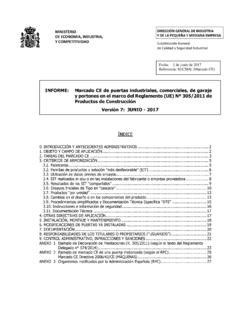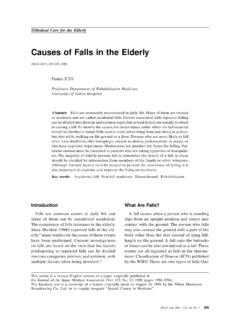Transcription of C. Galerius Valerius Maximinus: Studies in the …
1 C. Galerius Valerius maximinus : Studies in the Politics and Religion of the Roman Empire AD 305-313 C. Galerius Valerius maximinus : Studies in the Politics and Religion of the Roman Empire AD 305-313 By Torben Christensen, DD, Professor of Theology Edited by Mogens M ller With a Preface by Hugo Montgomery The Theological Faculty Copenhagen University C. Galerius Valerius maximinus : Studies in the Politics and Religion of the Roman Empire AD 305-313 Translated by Dr.
2 Karsten Engelberg, Assistant Lecturer Publikationer fra Det Teologiske Fakultet 35 Else Marie Bukdahl og Det Teologiske Fakultet ISBN 978-87-91838-48-4 e-ISBN 978-87-91838-51-4 Warm thanks for indispensable help on the various stages of the process of the editing and translation of this book are to be expressed to Revd. Torben Damsholt, Professor emer. Hugo Montgomery, Professor yvind Norderval, former Rector at The Royal Academy of Fine Arts Else Marie Bukdahl, and Postdoc, , Finn Damgaard.
3 Thanks also to Statens Humanistiske Forskningsr d for a substantial financial aid to the translation. Published by The Faculty of Theology, University of Copenhagen K bmagergade 44-46 DK 1150 K benhavn K Denmark Preface by Professor emer. Hugo Montgomery Professor Torben Christensen s work, C. Galerius maximinus . Studier over politik og religion i Romerriget 305-313, was published in 1974 by Copen-hagen University as a festschrift to mark the birthday of HM Queen Margrethe II. Until his tragically premature death, Professor Christensen continued relentlessly to work on revising the book and preparing it for publication in English.
4 The revision included primarily the first three chap-ters of the book. He managed to make only few corrections and additions to the last two chapters. The historical issues that Torben Christensen discussed in his book con-tinue to be highly relevant to the international readership that he addresses. In his introduction, he considers the nature and relations of the sources, including Lactantius and Eusebius, a topic that has loomed large for many years in German research in the field of church history.
5 His views on the problems of textual criticism that scholars face in these works deserve to be more widely known. Other types of sources are also included in the first two chapters where he offers a new interpretation of the Emperor Maximi-nus s efforts both as a ruler in the eastern half of the empire and later when the Diocletian tetrarchy began to disintegrate. This is particularly true of his new additions to chapter two in which he incorporates material from current papyrus scholarship, material, which often can be quite difficult to access.
6 The views he offers on the administration of the eastern parts of the Roman Empire also at the local level add both new interpretation and new material to the research into the history of the tetrarchy. In later sections of the work, Torben Christensen has given much atten-tion to the assessments, especially in texts by Eusebius and Lactantius, of maximinus s role in the process that made the Christian religion an ever more important point of political controversy. He also emphasizes non-Christian sources such as panegyrics and eulogies to emperors delivered during the tetrarchy.
7 He further explores traditional issues of church history through his use of evidence offered by inscriptions. Thus he sees the Bri-getio inscription of 311 as significant proof of the initial cooperation be-tween maximinus and his future adversaries in relation to the division of Galerius s area of authority. He rejects the interpretation offered by the publishers of the inscription. Torben Christensen s conclusions are ob-viously open to discussion, but they represent a valuable contribution to the ongoing discussion of the relations of power in the Roman Empire at a time when the old ruling structures were breaking up.
8 It may seem a hazardous enterprise to translate into English a Danish book written almost 40 years ago, even if it is a work of definite merit. After Professor Torben Christensen s death in 1983 many books and articles have been published on the central phase of the Roman Empire during which Christianity was transformed from being the excuse for persecutions into an accepted and even favoured religious movement. maximinus , the Roman Emperor who is central in Torben Christensen s study, has not attracted much research.
9 Many scholars still share Professor Christensen s view that maximinus hesitated to follow the edict of Galerius , for example E. Herrman Otto, Konstantin der Gro e, Darmstadt 2007. In his dissertation from 1994, Conservator urbis suae: Studies in the politics and propaganda of the Emperor Maxentius, Mats Cullhed offers strong arguments in support of the view that Maxentius, defeated by Constantine at Ponte Molle in 312, did not persecute the Christians but followed a softer religious policy in his relations with the Church.
10 Maxen-tius did not collaborate in any way with maximinus but had a political and religious agenda of his own. The religious views of Constantine the Great continue to be a contro-versial issue. Oliver Schmitt, Constantin der Gro e: Leben und Herrschaft, Stuttgart 2007, claims that the emperor s way to Christianity was a process over an extended period of time, not one begun by a sudden conversion. Paul Veyne, however, believes in the dramatic reports of Christian sources about a personal conversion of Constantine, Quand notre monde est deve-nue chr tien (312-394), dition Albin Michel 2010.




